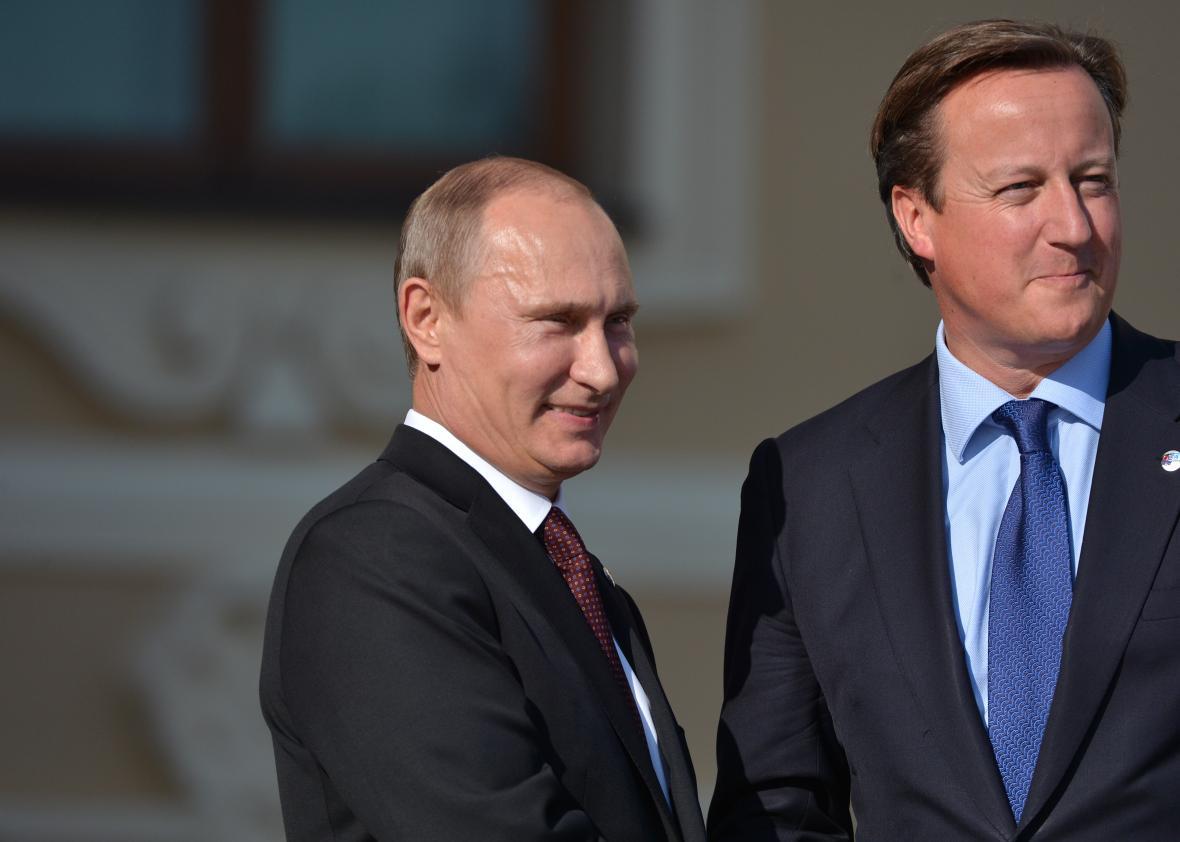On Thursday, David Cameron’s official spokeswoman said that a public inquiry concluding that Russian President Vladimir Putin “probably approved” the killing of former spy Alexander Litvinenko on British soil “regrettably confirms what we and previous governments already believed to date.” It’s hard not to detect a bit of downplaying in that statement, given that the 2006 murder is unfinished business between the two nations that’s re-emerging at an inconvenient time, when Cameron’s government would likely have preferred it stayed under the rug.
The U.K. is freezing the assets of Andrei Lugovoi and Dmitry Kovtun, the two Russian agents that the report concludes killed Litvinenko, and the government has summoned the Russian ambassador to express its displeasure. Britain says it is considering further action, but it’s likely to be limited. Litvinenko’s widow, Marina, told reporters that she expects “that the prime minister would do nothing in the face of the damaging findings.”
She has called for economic sanctions against the Russian government and a travel ban on Putin. Opposition lawmakers in Britain have suggested the country consider boycotting the 2018 World Cup in protest. But as Cameron’s spokeswoman put it, the government is weighing “the broader need to work with Russia on certain issues,” notably, “the threat from Daesh.”
The British government isn’t exactly allied with Russia over Syria. Like the U.S., it has criticized Russia for supporting Syrian dictator Bashar al-Assad and failing to distinguish between jihadist and Western-backed rebels in its airstrikes. But Cameron has also said that the gap with Russia over the fate of Assad is narrowing and that compromise may be possible. The Litvinenko affair has re-emerged just before internationally brokered talks at resolving the conflict in Syria are due to begin. That very fragile and fraught process will require the backing of the various sides in the conflict—including Britain and Russia—to have any hopes of succeeding.
Russia has, for years, resisted attempts to extradite the two suspects—Lugovoi was elected to parliament as a representative of the ultra-nationalist Liberal Democratic Party in 2007—and that’s not going to change now. The official response from Moscow to the latest report was dismissive, reflecting its confidence that London’s newfound outrage over the case will be short-lived. Putin’s spokesman Dmitry Peskov even called the report an example of “subtle British humor.”
